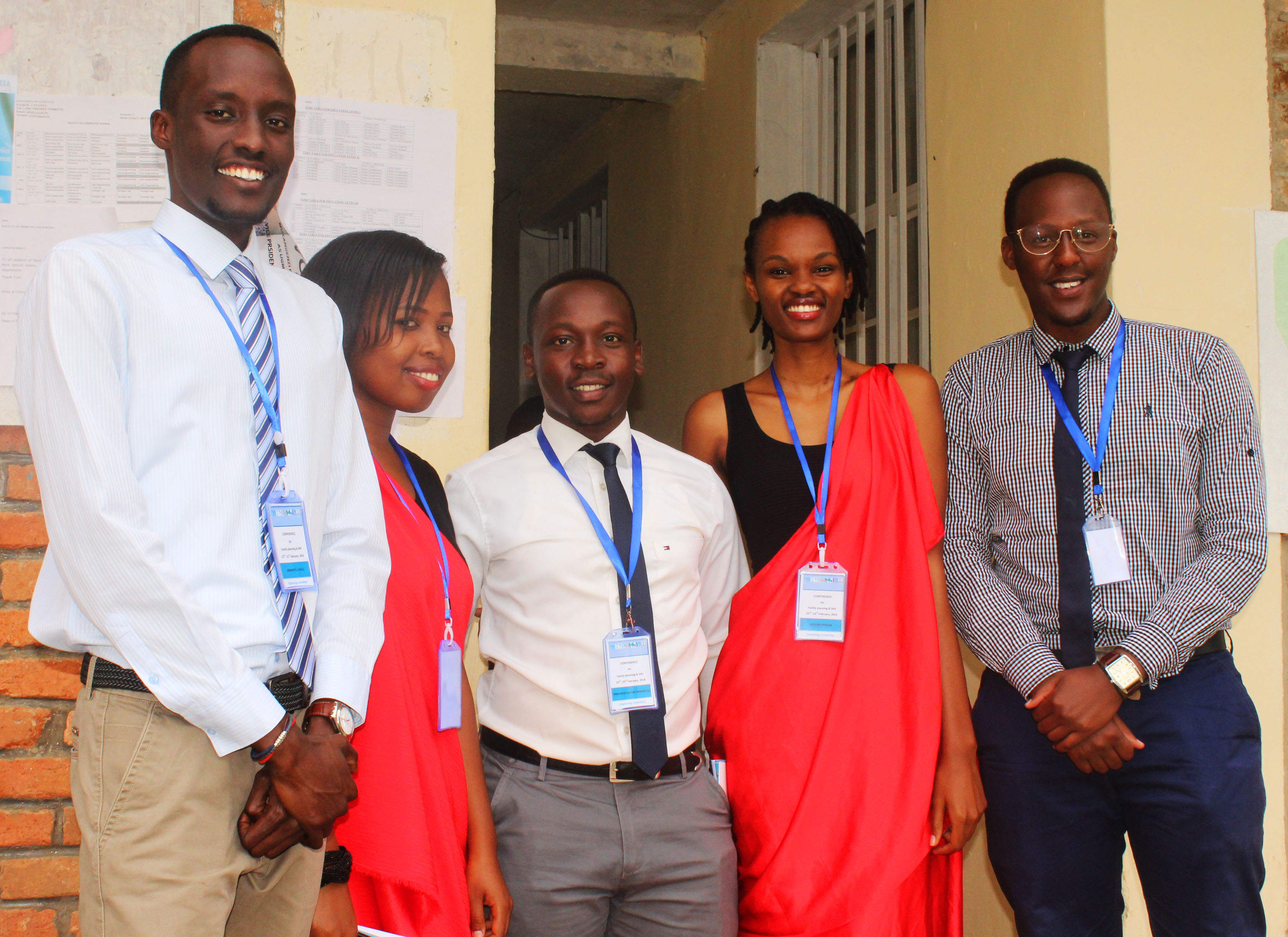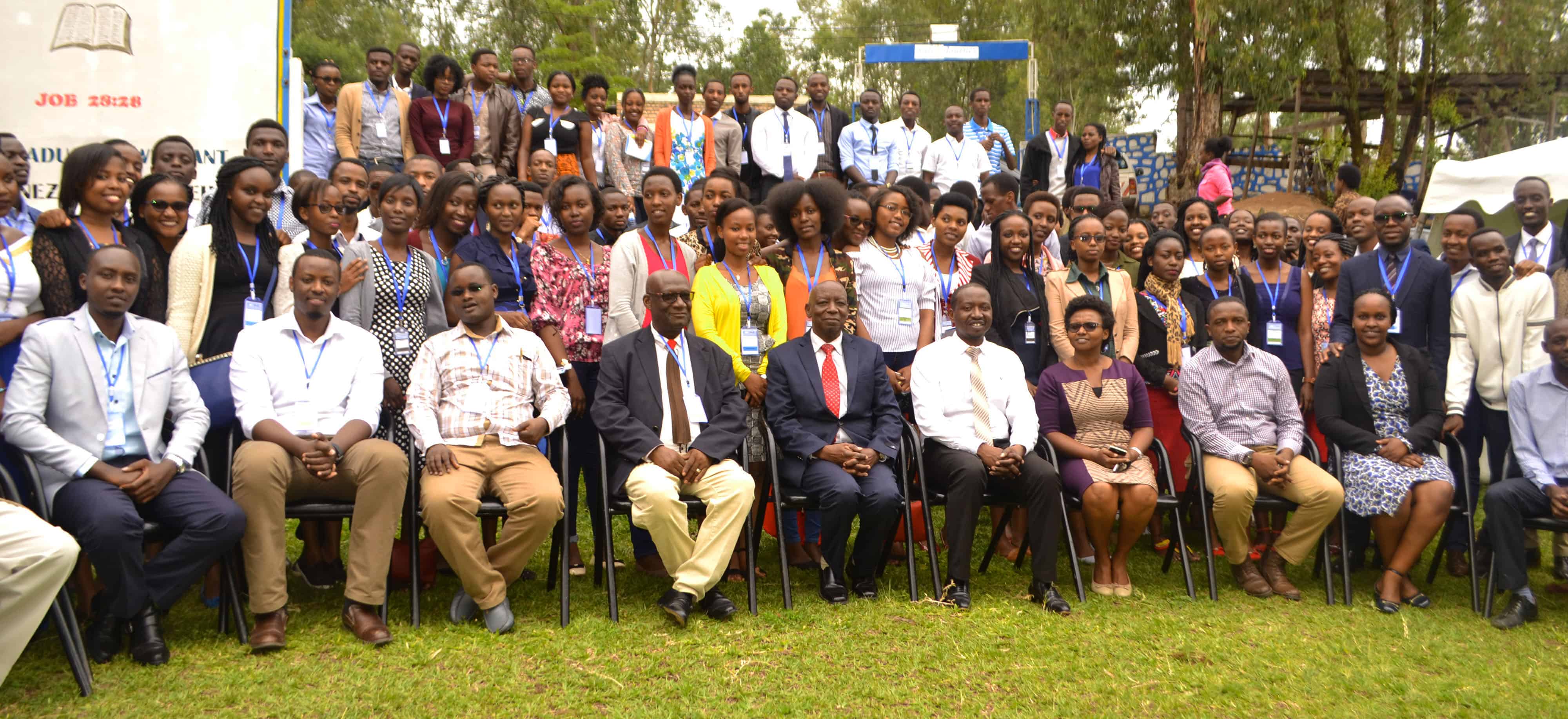By RWAMIYE J. Pavel, University of Gitwe
This February, over 250 students in multiple medical fields all over Rwanda (and abroad as well) gathered for a joint 3-day conference at the University of Gitwe. This conference, organized by our MSFC chapter in partnership with numerous other organizations, was entitled “The Role of the Youth in Addressing the High Number of Unsafe Abortions and their Complications.” We brought together medical, nursing, and pharmacy students; general practitioners, and other healthcare professionals; and several NGOs from Rwanda and abroad, including the United Nations Population Fund, Health Development Initiative, the Rwanda Biomedical Council, and African Youth and Adolescents Network (AfriYAN). We were also very happy to welcome our fellow MSFC Chapter at Makerere University in Uganda, who honored us with their presence and made successful contributions to the conference.
Rwanda is still a conservative society, although in larger cities the mentality is evolving. Abortion is only legal in Rwanda in cases of rape, incest, forced marriage and fetal impairment. Additionally, Gitwe is a very religious community, and abortion is strongly stigmatized although cases of induced abortions have been reported at the Gitwe Hospital. Even a pregnant woman who fits all the legal criteria for receiving an abortion (i.e is pregnant by rape or incest or who has a risky pregnancy) has to go through a long process which involves consulting at least two practitioners.
That serious matter happens to be our next move on the long journey of completely legalizing abortion. The conference attendees were committed to making significant change in simplifying the difficult process of obtaining a legal abortion, and we also discussed the necessity of reducing restrictions on abortion overall. Our speakers emphasized the numerous cases of women in prison because of abortion cases, and participants were shown testimony from girls who are serving time because they have been convicted of abortion.
The University of Makerere MSFC Chapter presented in a plenary session on abortion laws and access in Uganda, where laws are also very restrictive. The only difference between the two country is that in Uganda, they have many illegal suppliers that provide the population with abortion pills. Critical care is also provided easily in case of a self-induced abortion when the patient goes to the hospital.
Being in a religious community poses challenges to our work. As our university is a Seventh-Day Adventist school, our MSFC chapter is not recognized by the administration. Therefore, we hosted this event in partnership with the University of Gitwe Medical Student Association (UGMSA) and were able to host the event in their name. At the end of the conference, most of the participants were convinced that abortion legislation must be improved and supported the idea of reducing barriers to accessing legal abortions, while still considering Rwandan traditions. Through this conference, we reached a large number of students who will return to their communities and advocate for safe abortion throughout their careers. Many were interested in becoming MSFC members.
I think my education is behind all my activism. I was raised by a mother who could not tolerate gender inequality. My mother was a history teacher, and since we were very young, she taught us to respect every person regardless of their race, ethnicity and opinion. Facing gender discrimination in her career as a teacher, she quit and took evening courses on gender equality. After graduating, she became a women’s rights activist, and she now teaches other women in the countryside how to become independent.
This is what inspires me and makes me want to do something for all those women that are still under the oppression of our patriarchal society. The injustice toward women in our traditional society must stop, and we shall give women what is due to them since the beginning: the right to make choices about their body as they want! The time has come where all individuals shall be treated equally, and each and every person on this very Earth shall be free.

